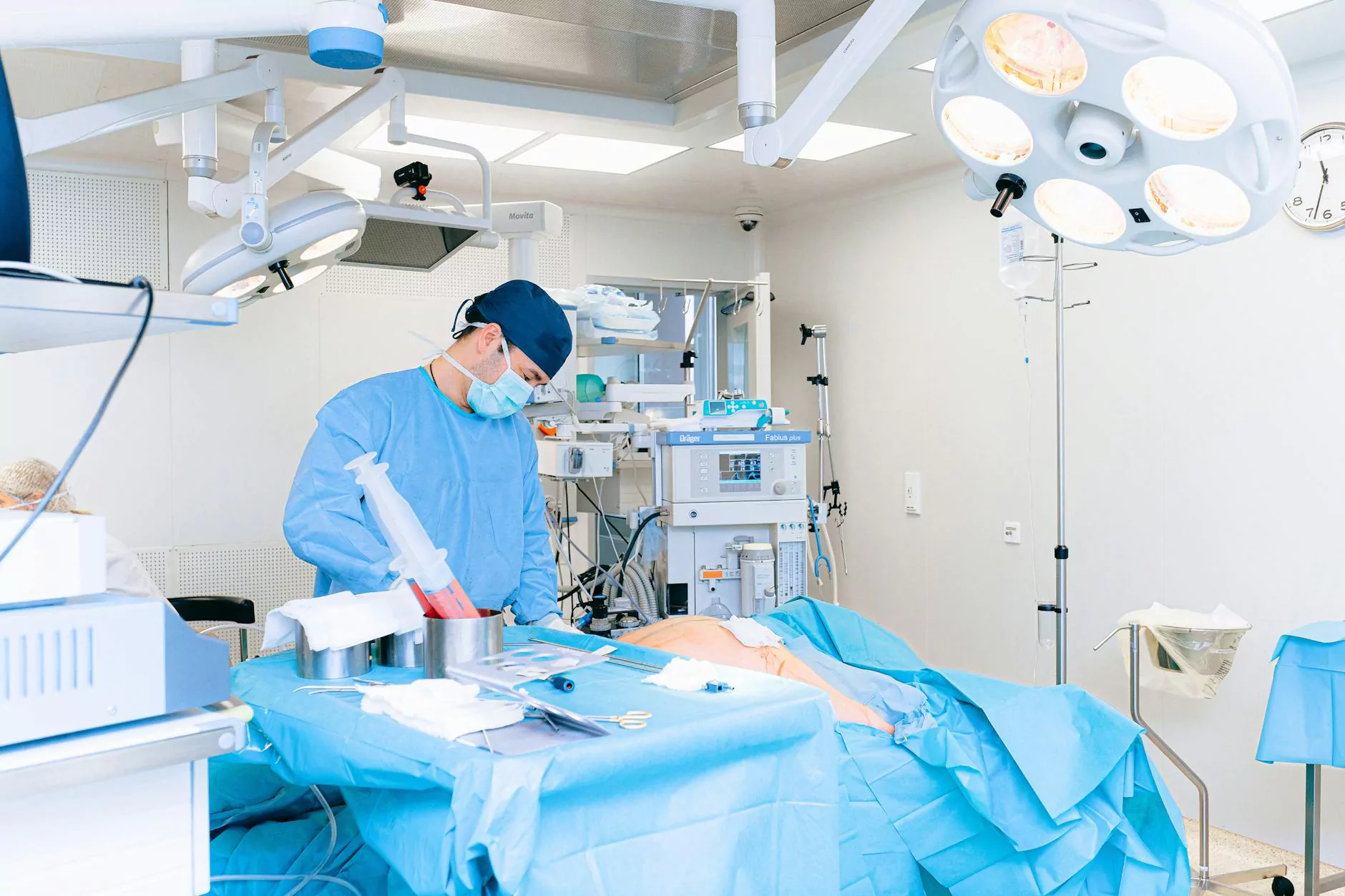Understanding the Role of a Thoracic Surgeon in Modern Healthcare

In the realm of health and medical professions, the role of a thoracic surgeon is pivotal. Thoracic surgeons are specialists who perform surgeries on organs within the thorax, which includes the heart, lungs, and esophagus. They work to treat various conditions that can significantly impact a patient's quality of life. In this comprehensive article, we will explore the training, expertise, and workload of thoracic surgeons, along with the advancements in techniques and technologies that are revolutionizing this medical specialty.
What is a Thoracic Surgeon?
A thoracic surgeon is a medical doctor who has completed rigorous training in surgical procedures targeting the thoracic cavity. This specialty is crucial because the thorax houses some of the most vital organs in the human body. Thus, it requires meticulous skill and knowledge to navigate the complexities of these surgeries.
Key Responsibilities of a Thoracic Surgeon
The responsibilities of a thoracic surgeon are both extensive and critical. Their primary duties include:
- Performing Surgeries: This involves major operations such as lobectomies, heart valve repair, and aortic aneurysm repairs.
- Conducting Evaluations: Before surgery, thoracic surgeons evaluate the patient's condition, conduct physical examinations, and review imaging studies.
- Collaborating with Healthcare Teams: They work closely with anesthesiologists, nurses, and other specialists to ensure comprehensive patient care.
- Postoperative Care: After surgery, thoracic surgeons monitor patients, manage pain, and address any potential complications.
The Training Pathway to Becoming a Thoracic Surgeon
Becoming a thoracic surgeon involves a considerable commitment to education and training. The following steps outline the journey:
- Undergraduate Education: Aspiring thoracic surgeons typically complete a bachelor's degree, focusing on pre-medical courses.
- Medical School: They must attend medical school and earn a Doctor of Medicine (MD) degree, which usually takes four years.
- Residency Training: Following medical school, they enter a general surgery residency, which lasts about five years. Here, they gain hands-on surgical experience.
- Fellowship in Thoracic Surgery: After residency, a one- to two-year fellowship specializing in thoracic surgery is essential for advanced training in thoracic procedures.
Common Conditions Treated by Thoracic Surgeons
Thoracic surgeons are equipped to handle a wide array of conditions affecting the thorax. Some of the most common conditions they treat include:
- Lung Cancer: Early detection and surgical intervention are critical for improving survival rates.
- Esophageal Disorders: Conditions such as esophageal cancer or achalasia are addressed through surgical techniques.
- Heart Diseases: Thoracic surgeons may repair or replace heart valves and perform coronary artery bypass surgery.
- Trauma: They are often called to manage severe thoracic injuries from accidents or violence.
Advancements in Thoracic Surgery
Thoracic surgery has evolved tremendously over the past few decades, incorporating advanced techniques and technologies that improve outcomes and recovery times.
Minimally Invasive Techniques
The rise in minimally invasive thoracic surgery has transformed the way procedures are performed. Techniques such as video-assisted thoracoscopic surgery (VATS) and robotic-assisted surgeries enable surgeons to accomplish complex tasks through smaller incisions. These approaches offer several advantages:
- Reduced Pain: Smaller incisions lead to less postoperative pain.
- Shorter Hospital Stays: Patients often leave the hospital sooner, resulting in lower healthcare costs.
- Faster Recovery: Minimally invasive procedures typically mean quicker returns to normal activities.
Innovations in Surgical Tools
Modern technology has ushered in the use of sophisticated surgical tools that aid thoracic surgeons in performing precise procedures. Tools like robotic arms provide enhanced visualization and dexterity during complex operations, allowing for improved surgical precision and reduced recovery times.
The Importance of Multidisciplinary Collaboration
Thoracic surgeons do not work in isolation. Their ability to provide optimal care often relies on multidisciplinary collaboration with various healthcare professionals:
- Oncologists: For patients with lung or esophageal cancer, thoracic surgeons team up with oncologists to determine the best surgical approach and adjuvant therapies.
- Radiologists: Imaging studies are essential for accurate diagnoses and surgical planning, making radiologists vital partners.
- Respiratory Therapists: These specialists assist in managing patients' lung function both pre- and postoperatively.
- Nurses and Physician Assistants: They play essential roles in patient care, education, and support throughout the surgical process.
Patient-Centered Care in Thoracic Surgery
At the core of thoracic surgery is a commitment to patient-centered care. This involves understanding each patient's unique situation and providing personalized treatment plans. Effective communication, empathy, and reassurance all work together to create a supportive environment for patients facing surgery.
Preoperative Considerations
Prior to any thoracic procedure, thorough assessments are made, including:
- Comprehensive medical histories
- Risk evaluation
- Preoperative counseling to prepare patients physically and mentally for surgery
Postoperative Recovery and Rehabilitation
After surgery, the journey does not end. A structured rehabilitation program tailored to patients' needs is crucial. This may include:
- Pain Management: Techniques vary from medications to holistic approaches.
- Physical Therapy: Rehabilitation exercises focus on improving lung function and overall strength.
- Regular Follow-Ups: Continuous monitoring ensures recovery progresses as planned.
Conclusion: The Impact of Thoracic Surgeons
In conclusion, thoracic surgeons play an indispensable role in the health and medical field. As specialists whose work saves lives, enhances quality of life, and improves patient outcomes, their expertise is crucial in addressing some of the most serious health challenges. The advancements in surgical techniques, technologies, and a commitment to patient-centered care signify a bright future for the specialty. As we continue to innovate and refine practices, thoracic surgeons will remain at the forefront of medical excellence, dedicated to fulfilling their mission of preserving and improving human health.
For more information about health, sports medicine, and physical therapy, visit Hello Physio



